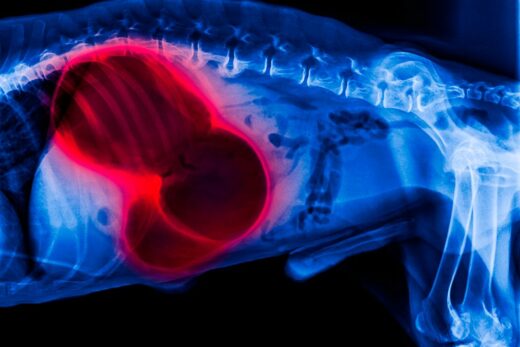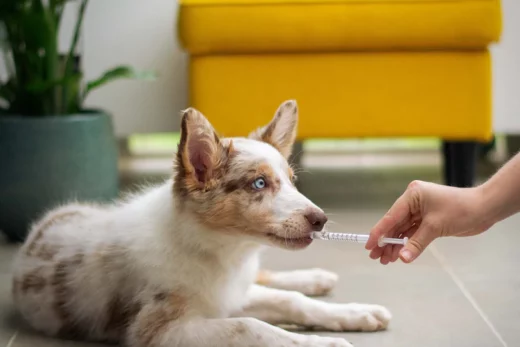
A dog’s upset stomach can be stressful for the dog and the owner to deal with. An upset stomach can lead to a messy household and a rather unhappy dog, so it’s important to isolate the cause (so it doesn’t happen again) and to provide a cure or treatment to alleviate your dog’s suffering!
An upset stomach isn’t necessarily a huge cause for concern, though, as generally speaking, your dog will have eaten something it shouldn’t have. However, there are going to be scenarios when you need to consult your veterinarian for further advice.
Let’s examine the potential causes of an upset stomach in dogs and explain what options you have for providing relief. Keep reading to find everything you need to know about a dog’s upset stomach.
Signs and Symptoms of a Dog’s Upset Stomach
Dogs can experience varying degrees of distress when they have an upset stomach. It might be very obvious that they have a problem (as you might find yourself cleaning up the mess around the house or in the backyard!); however, many symptoms can be more subtle, and your dog can’t simply communicate their pain or discomfort to you.
Vomiting and diarrhea are the two major giveaways when it comes down to a dog having digestive problems – but symptoms also include apathy or even eating grass!
Here are the major signs and symptoms of dog stomach problems that you need to look out for:
- Vomiting
- Diarrhea
- Salivation
- Licking the floor
- Eating grass
- Loss of appetite
- Flatulence
- Gurgling stomach noises
They are all symptoms that your dog isn’t feeling great, but on their own, these symptoms aren’t too much cause for concern. While your dog will be unwell, it’s highly likely that they have just eaten something they shouldn’t have.
Unfortunately, it’s very difficult to stop your dog from eating! They’ll eat almost anything, but their stomachs can’t quite handle everything they try to eat.
It’s also difficult to police what your dog gets up to when they are in the backyard or when you are away from home; if you accidentally leave food out, they’ll be all too delighted to dive into the chicken and rice you prepared for dinner.
If you can, doggie-proof your house, don’t feed them scraps under the table, and try to identify what food has caused their stomach to be upset.
Overall though, dog diarrhea signs, diarrhea symptoms in dogs, and other symptoms such as vomiting will all pass, usually within 24 hours, once their digestive system has worked through whatever it is that made them ill.
Curiously, dogs often try to eat grass in an attempt to flush out their digestive system. If you see your pet dog munching away on grass, then again, this is actually normal behavior. The grass works in a similar way to fiber, strengthening the gut and helping to remove the bad stuff they just ate (grass and grass-eating could be considered to be doggie home remedies!).
Serious Symptoms of a Dog’s Upset Stomach
However, you do need to watch your dog’s symptoms, and if they continue for a long period of time or progressively worsen, then you need to speak to your vet.
Upset stomachs can also be caused by poisoning, bacterial infections or viruses, or they could be a serious sign of an underlying illness or condition. If you’re in any way worried for your dog’s health, or if their symptoms just aren’t going away, then your dog will need to be professionally diagnosed.
For many stomach illnesses, there’s often readily available medicine (such as antibiotics) that can quickly cure your pet pooch — there’s no reason to make them suffer longer than necessary.
If you notice any of the following, alongside symptoms such as vomiting or diarrhea, then contact your vet immediately:





